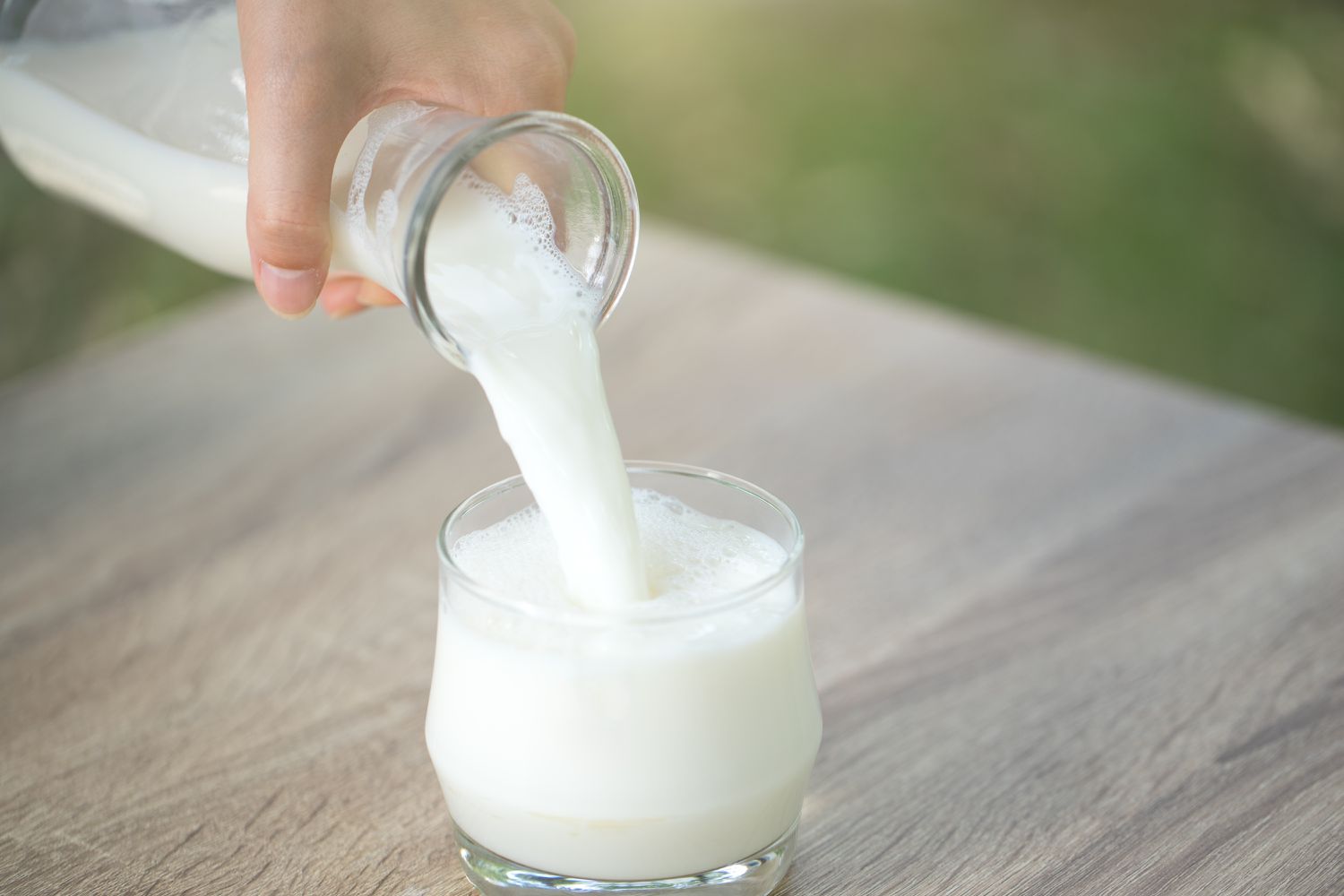The Different Types of Lactose-Free Milk

More recently, advancements in food technology have led companies to create alternative dairy proteins using precision fermentation. These new alternative proteins are nutritionally identical to those found in cow’s milk but free of lactose, cholesterol, hormones, antibiotics, and the harmful environmental impacts of conventional dairy agriculture. Products like Strive FREEMILK contain animal-free whey protein that results in a milk product similar to traditional milk’s taste, texture, and creaminess but without the downsides of conventional dairy. There are many options available, from plant-based products to milk with lactase and animal-free protein-enriched milk. Let’s take a look at the different types of lactose-free milk on the market today.
Plant-Based
There are many types of plant-based milk products on the market today. Plant-based milk is made from plants, such as soy milk, rice milk, oat milk, and hemp milk. Plant-based products are a great alternative for those who are lactose intolerant or have a dairy allergy. Plant-based milk is more environmentally sustainable than conventional dairy and can also be a good source of some proteins and vitamins.
While plant-based and organic lactose-free milk products are healthy alternatives to traditional dairy milk, there are some drawbacks. Plant-based milk often lacks the full range of essential amino acids and other beneficial nutrients. This results from the fact that plant protein is an incomplete source of amino acids. In general, you will notice that plant-based milk products typically have lower nutritional values than dairy milk. A food is considered a complete protein when it contains the nine essential amino acids that our body cannot produce on its own. Amino acids are organic compounds that are considered to be the “building blocks” of protein. Animal proteins are complete, including meat, poultry, fish, eggs, and dairy.
There are only a few plant-based sources that are complete proteins. Quinoa and soy are two examples. Soy protein has similar nutritional qualities to that of dairy protein. However, the liquid extract from soybeans can sometimes have a beanlike or even chalky taste that can be a drawback for some people. Research has also shown that soy can produce many harmful health effects. Many of these concerns are due to the vast number of “anti-nutrients” found within soy, the plant compounds that can lead to an array of health issues such as digestive disorders, hormone imbalances, or immunologic reactions. Soy is also ranked as one of the top eight food allergens in the U.S., particularly among infants and children.
Pea protein has become increasingly popular in plant-based products as consumers shy away from soy; however, these isolated plant proteins still pose similar health risks. Peas are in the legume family, like soybeans, and also contain many anti-nutrients such as phytates (which can decrease the absorption of iron, zinc, magnesium, and calcium), lectins (some people claim that lectins cause increased gut permeability and drive autoimmune diseases), and trypsin inhibitors (trypsin is a digestive enzyme that breaks down proteins in the small intestine).
Nut-Based
Nut-based milk is a dairy-free alternative that is made from various types of nuts. It is typically made by blending nuts with water and then straining the mixture to remove the solids. Nut-based milk products are a good option for those who are dairy-free or vegan, and they can also be enjoyed by those who are lactose-intolerant. The most popular types of nut-based milk include almond, cashew, and hazelnut. Nut-based milk is available in various flavors and textures, and it can be used in a variety of recipes.
Almond milk has a higher content of calcium, magnesium, and vitamins A, D, and E than oat milk. But most nut-based milks, including almond, are typically lower in protein content, typically 1-2 grams per 8 ounces versus around 8 grams of protein in a glass of cow’s milk. Some manufacturers add supplements like calcium and protein to boost the nutritional content. However, if you have nut allergies, these types of milk products can trigger a reaction. And be careful of sweetened nut milks like sweetened almond milk, which contain significant amounts of added sugar.
Lactase-Based
Aside from nut and plant-based milk alternatives, many companies are now producing lactose-free dairy milk. If you have lactose intolerance, a glass of milk might trigger digestive distress. Lactose is a type of sugar found in milk products that can be difficult for some people to digest. To combat this, milk producers add lactase to dairy milk. The lactase enzyme is produced by people without dairy sensitivities and helps to break down lactose in the body.
When lactase is added to milk, it essentially predigests the sugar into glucose and galactose. The milk doesn’t contain any added sugar, but it may taste sweeter because your taste buds perceive glucose and galactose as sweeter than lactose. Additionally, you may also notice a slightly different taste because the milk has to be ultra-pasteurized to deactivate the enzyme. Lactase-based milk is good for those with lactose intolerance, however, it still has dairy proteins which will trigger a reaction in those with a milk allergy.
There is also a new category of lactose-free “ultra-filtered” cow’s milk that is put through an intense filtration process to remove the lactose. While lactose-free and lower in sugar than regular cow’s milk, it is not an animal-free product and still comes with the environmental impacts of conventional dairy agriculture.
Non-Animal Whey-Based
While traditional plant-based and nut-based products have been around for a while, innovation in food science has provided a new take on lactose-free dairy. Perfect Day Foods, a food tech company based in California, has recently created a method for producing dairy proteins without cows. The process relies on a fermentation process, not unlike that used historically in brewing or winemaking. The twist is that Perfect Day uses a tiny organism called microflora that is programmed with the genetic blueprint corresponding to milk protein. The flora is fed natural plant sugars that trigger a fermentation process that results in proteins that are identical biologically to the proteins found in cow’s milk. The resulting animal-free dairy protein delivers the same creamy, melty, silky texture and taste as regular dairy.
This non-animal whey-based protein can be incorporated into milk, protein shakes, and other dairy items to create a wide range of lactose-free products that have the same taste and texture as real dairy without the downsides of lactose, hormones, antibiotics, or other animal inputs. Additionally, because the protein is identical to regular milk protein, you get the essential amino acids and other nutritional benefits of real dairy. You should note, however, that similar to lactase milk, non-animal whey can trigger a milk allergy as the protein is bioidentical to dairy protein.
Companies like Strive Nutrition Corp. are incorporating non-animal whey protein into a line of milk alternatives that are just as good as the real thing. Strive FREEMILK is an animal-free whey-based product that whips, foams, blends, cooks, and tastes like traditional milk, but it’s free of lactose, cholesterol, hormones, antibiotics, and any factory dairy farming processes. Strive also offers protein-enriched oat milk and almond milk that incorporates 10 grams of animal-free whey protein from Perfect Day Foods. Any of the Strive products are a great option for milk alternatives to include in your diet and favorite recipes.
Lactose-free dairy milk can be plant-based, nut-based, lactase-based, or animal-free whey-based and used as an alternative to traditional dairy milk. It is often fortified with vitamins and minerals and can be lower in calories and cholesterol. Many of these products are healthy alternatives to traditional dairy and serve to support a vegan-based lifestyle.


